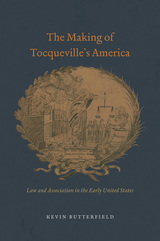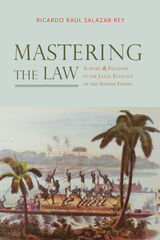Adam Smith
Reaktion Books, 2016
Paper: 978-1-78023-568-4 | eISBN: 978-1-78023-600-1
See other books on: Adam Smith | Business & Economics | Conlin, Jonathan
See other titles from Reaktion Books
Paper: 978-1-78023-568-4 | eISBN: 978-1-78023-600-1
ABOUT THIS BOOK | AUTHOR BIOGRAPHY | REVIEWS | TOC | REQUEST ACCESSIBLE FILE
ABOUT THIS BOOK
Universally acknowledged as the father of capitalism, the eighteenth-century Scottish thinker Adam Smith is best known for his “invisible hand” theory. This theory argued in favor of setting individuals free to pursue their self-interests for the good of all and has helped to make Smith's name synonymous with unfettered free market capitalism. In this book, Jonathan Conlin rescues Smith from the straight-jacket of economics, reattaching the “invisible hand” to Smith’s philosophy of ethics.
As Conlin shows, Smith rooted our instincts to trade in human psychology. Analyzing the contrasts he saw between the industrializing Scottish lowlands and the clan-based pastoralism of the Scottish highlands—as well as the contrasts between the ideas of contemporary thinkers such as Jean-Jacques Rousseau and David Hume—Smith advanced a system of ethics founded on sympathy. Weaving together Smith’s life and ideas, Conlin shows how the latter anticipated much more recent developments surrounding behavioral economics, virtue ethics, and social inequality. Ultimately, Conlin argues, Adam Smith offers us a set of tools to face today's challenges and become better and happier human beings.
As Conlin shows, Smith rooted our instincts to trade in human psychology. Analyzing the contrasts he saw between the industrializing Scottish lowlands and the clan-based pastoralism of the Scottish highlands—as well as the contrasts between the ideas of contemporary thinkers such as Jean-Jacques Rousseau and David Hume—Smith advanced a system of ethics founded on sympathy. Weaving together Smith’s life and ideas, Conlin shows how the latter anticipated much more recent developments surrounding behavioral economics, virtue ethics, and social inequality. Ultimately, Conlin argues, Adam Smith offers us a set of tools to face today's challenges and become better and happier human beings.
See other books on: Adam Smith | Business & Economics | Conlin, Jonathan
See other titles from Reaktion Books












